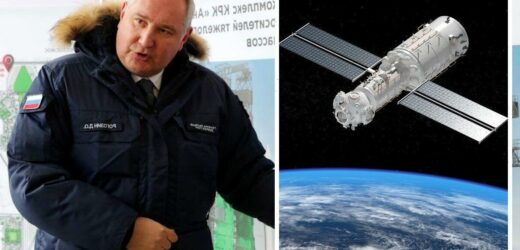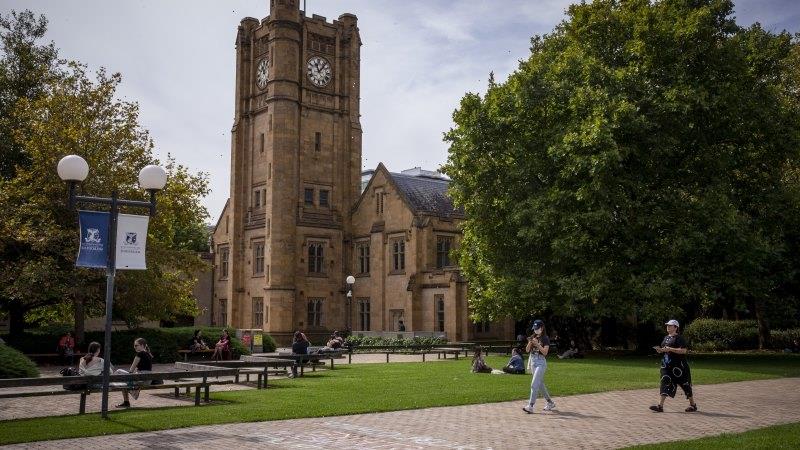Russia launches Sineva and Iskander missiles in military drills
We use your sign-up to provide content in ways you’ve consented to and to improve our understanding of you. This may include adverts from us and 3rd parties based on our understanding. You can unsubscribe at any time. More info
The news comes as Russia’s space agency Roscosmos is finding its daily operations difficult to maintain since the start of the invasion of Ukraine over 100 days ago. Conflict with Ukraine has alienated Russian institutions around the world, with the space agency no exception to the rule as the international space community loosens ties with Moscow.
The satellite in question was launched by Russian spacecraft three years ago.
The launch housed its primary instrument called eROSITA, an X-ray observatory built by the Max Planck Institute for Extraterrestrial Physics (MPE) in Germany, as well as the ART-XC instrument, a Russian high-energy X-ray telescope.
Yet like many other bodies, Germany cut off its cooperation with Roscosmos over the war with Ukraine, pushing the eROSITA into “safe mode” in late February.
Furious Russian space officials now want to take back control of the equipment in a sign Moscow will not tolerate political pressure on its space programme.


Speaking of the plan, top Roscosmos chief Dmitry Rogozin said: “I gave instructions to start work on restoring the operation of the German telescope in the Spektr-RG system so it works together with the Russian telescope.
“Despite Germany’s demand to shut down one of the two telescopes at Spektr-RG, Russian specialists insist on continuing its work.
“Roscosmos will make relevant decisions in the near future.”
However, German officials are concerned any remote intervention into the satellite without cooperation from Berlin could result in damage to the hardware.


The anger continued to be apparent as Mr Rogozin, speaking to DW said: “They, the people that made the decision to shut down the telescope, don’t have a moral right to halt this research for humankind just because their pro-fascist views are close to our enemies.”
However, the scientific director of the Spekr-RG project said that attempts to restart the telescope without German cooperation could be detrimental to the device itself.
The recommissioning could take place only with Germany’s consent; otherwise, the telescope would be in danger of breaking down, said Russian astrophysicist Rashid Sunyaev.
The Russian Interfax news agency also cited him as saying that “unilateral action in this situation only adds more mistrust between people.”
Yet writing in The Byte, Victor Tangerman said: “One thing’s for sure, though – don’t ever bet against chaos in the Russian space programme.”
DON’T MISS:
Eurostar chaos in Paris as passengers face 90 min queues [REVEAL]
BBQ Master provides top tips for Platinum Jubilee party [REPORT]
Objectum sexual gets physical with Boeing models [INSIGHT]

Similar tension was sparked between Russian and international partners over the International Space Station (ISS) at the start of the Ukraine conflict.
Once again, Roscosmos president Mr Rogozin was vocal in his thoughts surrounding the ISS, and how international pressure on Russia could see Moscow pull out of the project.
The irate chief slammed sanctions placed on Russia and made the threat in April saying: “The purpose of the sanctions is to kill the Russian economy, plunge our people into despair and hunger and bring our country to its knees.
“I believe that the restoration of normal relations between partners in the International Space Station and other joint projects is possible only with the complete and unconditional lifting of illegal sanctions.”
Follow Defence and Security Correspondent James Lee on Twitter by using the following handle, or clicking here: @JamesLee_DE

Mr Rogozin said his proposals “on the timing of the completion of cooperation within the ISS” would be submitted to the Russian government “in the near future.”
Responding to the threats, NASA played down the angry rhetoric.
NASA administrator Bill Nelson said: “That’s just Dmitry Rozogin.
“He spouts off every now and then.
“But at the end of the day, he’s worked with us.
“The other people that work in the Russian civilian space program, they’re professional.
“They don’t miss a beat with us, American astronauts and American mission control.”
Source: Read Full Article


